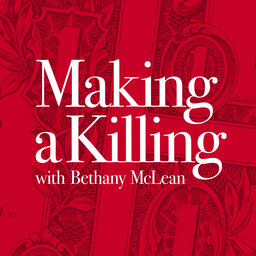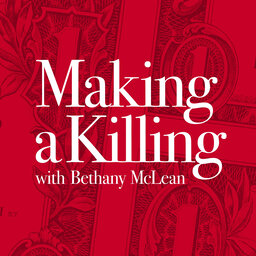Paul Tough on How College Makes Us or Breaks Us
If there’s a defining feature of upper income life for people with children, it’s school stress. How do you get your kids into the right preschool so they can get into the right high school so they can go to the best college? Paul Tough’s new book THE YEARS THAT MATTER MOST: How College Makes or Breaks Us, reveals why college, which is supposed to be the great equalizer, has become something that depends on and reinforces class and privilege. This is a huge deal for the business world. If we’re losing access to talent, we’re losing more than words can say. It also, of course, is a huge deal for our society. It’s not too grandiose to say that education determines the shape of the society in which we live. So…what shape is that?
Learn more about your ad-choices at https://www.iheartpodcastnetwork.com
In 1 playlist(s)
Making a Killing with Bethany McLean
Big Business is shaping the world in unprecedented ways. Through a series of conversations with toda…Social links
Follow podcast
Recent clips

Going, going, Ghosn - with Joe Nocera
39:47

Malcolm Harris on "Keynes Was Wrong. Gen Z Will Have It Worse."
37:45

Liam Denning on the Price of Oil
45:14
 Making a Killing with Bethany McLean
Making a Killing with Bethany McLean